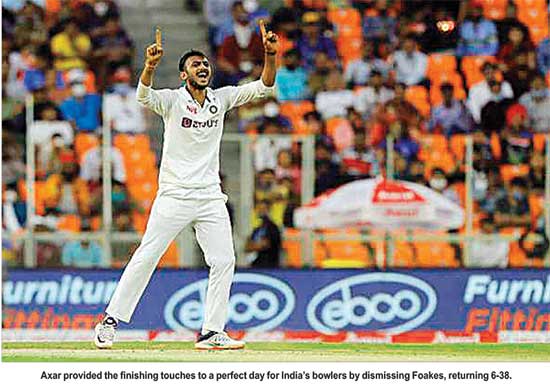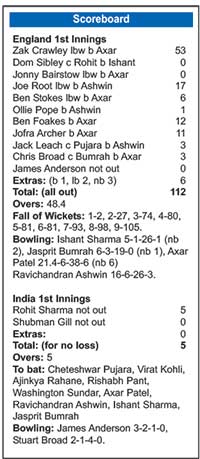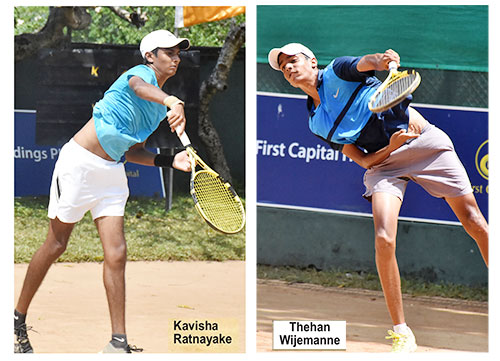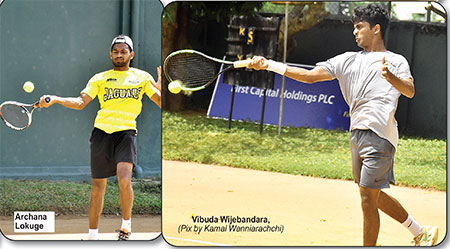Sports
Of Sports Schools and schools sports

The absence of infrastructure at Ratnayake Central was compensated by well laid out individualized training plans for each sports scholarship holder. It was the key to Ratnayake Central dominating All Island Schools Games.
by Reemus Fernando
Introduced to the education structure with the objective of nurturing future sportsmen and women of Sri Lanka, the two dozen Sports Schools doting the island from north to south have lasted three decades without going through a proper scrutiny. Names of majority of Sports Schools are not even heard of when the All Island Schools Games are held annually. While semi government, private and international schools have gone on to dominate school sports, some half a dozen Sports Schools have survived the gross negligence of education authorities and storms of change that have swept through the schools set up during the last two decades to perform relatively well.
The success of these few schools were purely due to the dedication of a few qualified individuals who had gone out of their way to uplift standards. With the Education Ministry and the Sports Ministry preparing to upgrade the standard of Sports Schools around the country it should be noted that while addressing the infrastructure needs, emphasis should also be given to appoint qualified and dedicated officials to take responsibilities of these institutions.
When the Sports Schools were started in 1989 with the Ibbagamuwa Central as the first such school the project was overseen by an Education Ministry official who had obtained his sports education qualifications from a reputed institution in Germany. The decisions relating to physical education and sports in the Ministry of Education had his influence. Results were available to see in the form of success in athletics at Asian level during the late 90s and early 2000s with athletes who came through that system later graduating with the help of top level coaches. Ministry of Education has a handful of qualified individuals who are operating as instructors or coaches but at decision making level they do not have a say.
Infrastructure verses qualified officials
Ratnayake Central Walala, the only Sports School to have maintained the supremacy in track and field sports right throughout does not have a proper ground to date, not even a proper 200 metres track. The absence of infrastructure was compensated by well laid out individualized training plan for each sports scholarship holder. Susantha Fernando who was instrumental in guiding the destiny of many top level athletes also had an eye for talent identification and made sure the school had a continuous supply of raw talent every year. The school boasts of Asian Junior Athletics Championships medallists to Olympic participants to South Asian Games medallists. Fernando’s training was responsible for the majority of medals won at the last South Asian Games as well.
Sumana Balika, Ratnapura was probably the next best Sports School in the girls category taking in to consideration the number of times the school became runners-up to Ratnayake Central. Once again it was the coaching qualifications of an individual that mattered. Sumana Balika excelled as long as R.B. Palitha was their instructor. Seevali Central the other Sports School of Ratnapura had a similar experience. They could dominate as long as Palitha was their mentor.
Henegama Central did well during Prabath Fernando’s stint and Rajasinghe Central is the only Sports School in the Western Province to maintain its stature as a Sports School with Jayalal Ratnasuriya, a qualified World Athletics coach overseeing the progress of its athletes. Vijitha Central, Dickwella and Kuliyapitiya Central are among few other Sports Schools to have made their presence felt during the last several years.
No amount of infrastructure development can make a Sports School competitive. Once a stronghold of Sri Lanka’s national sport, volleyball, the name of Sports School Senanayake MV, Madampe is hardly heard these days. Ibbagamuwa Central, the first Sports School is not functioning though the school’s instructor trains a few high jumpers. Some of the 23 Sports Schools are either not operating at all or are performing below par. Had there been qualified individuals in the Ministry of Education to scrutinies these institutions.
Talent identification failures and emergence of private schools
One of the brightest prospects to emerge from the schools system during the last few years is Asian Junior Athletics Championship gold medallist Aruna Dharshana. Hailing from Seruwila, Trincomalee, Dharshana bypassed several Sports Schools in two other districts to find refuge at Weera Keppetipola MV, Akuramboda. He was lucky to have the guidance of Asanka Rajakaruna at that Sports School. Wasn’t there a system to identify his talent at his home place? Trincomalee is home to two Sports Schools.
While the standards of Sports Schools were crumbling, a good number of private and government schools had given priority to sports and athletics in particular. A number of schools in Colombo and Kandy and International Schools elsewhere started investing heavily on sports during the last one and half decades. Sports training at these schools are no longer overseen by officials attached to Ministry of Education. For example, the track and field coach of a leading government school in Colombo is a sports officer of the Ministry of Sports and a qualified World Athletics coach and instructor. These schools have been responsible in producing many athletes to represent Sri Lanka at junior Asian and junior World level. The emergence of these schools has also given rise to an unprecedented talent exodus from outstations.
A particular school in Colombo launched a recruitment drive during the last three years to an extent that that school now has the luxury of winning the All Island Schools track and field title with their second string. Some of these schools hellbent on winning have gone on to the extent of jeopardizing the education of these recruits from outstations. Many junior athletes recruited from outstations find themselves out of place in the midst of their English-speaking classmates and hardly attend classes. They are guaranteed jobs when they are recruited and find education non essential. To be continued……………..
- News Advertiesment
See Kapruka’s top selling online shopping categories such as Toys, Grocery, Flowers, Birthday Cakes, Fruits, Chocolates, Clothing and Electronics. Also see Kapruka’s unique online services such as Money Remittence,News, Courier/Delivery, Food Delivery and over 700 top brands. Also get products from Amazon & Ebay via Kapruka Gloabal Shop into Sri Lanka.
Sports
Imran steals the show!

(This article by The Island’s respected cricket columnist Rohan Wijeyaratne first appeared in these pages 16 years ago; on the 11th of June 2005. As World Cup winning former captain and current Prime Minister of Pakistan Imran Khan has just visited the island, we reproduce this article in today’s edition)
In my youth – which is to say, quite a long time ago – I would often go to the YMCA canteen for a snack and a tea after whatever business that brought me to the Fort. Doing the same recently more for old times sake than anything else, I saw a familiar figure ahead of me heading in the same direction. Quickening my step and drawing abreast, I introduced myself to the gentleman concerned. He was none other than my old school English teacher, V. Thanabalasingham.
Not just a teacher, but an Institution
Those of you who may have passed through the portals of Ananda College during the 1960s and the early 70s and no doubt been well rounded in many ways, will admit to a man that when it came to the teaching of English, the name Thanabalasingham held no peer. In his prime, he was not just a brilliant teacher but an Institution. And volumes wouldn’t suffice to do him justice – such was the impact he made on all whom he touched, be it with the brilliance of Thackeray, Dickens, Chaucer or the Direct Method English Course that served as our bread and butter in English education at the time.
Another, from a different mould
Another teacher from an entirely different mould was Upali Ratnayake, now the Executive Director of CIMA. At the time he was introduced to us at the ‘A’ level stage, he appeared to our free spirits a cut above the rest. He acquired this status by doing exactly the opposite of what he was expected to do, which was to teach us English as a preparatory step towards an easier passage through University. Upali Ratnayake actually taught us nothing. Yet we learnt a good deal off him, discussing almost everything other than the subject he was paid for! His most endearing virtue was that he never spoke to us from a great height. And in that process, he taught us one of the most lasting lessons in life.
Several decades later, I nearly fell off my chair to receive a phone call from him inviting me to the BMICH on the 28th of May where Imran Khan and Kumar Sangakkara were due to speak at the CIMA Global Leaders Summit. The topics for discussion were “Passion for Perfection” and “Ordinary people in extraordinary acts.” The topics and the speakers seemed irresistible. And so I went.
What a speech!
I wasn’t disappointed. Neither were hundreds of others present. And predictably, Imran stole the show. Blessed with a presence that would have put any Grecian god to second class status, this tall, elegant and immensely handsome man spoke with such brilliance, clarity and articulation, the end result was as gripping as it was inspiring. In his wake, those who followed appeared cumbersome and dreary, almost like how Kenny Mackay would appear after the brilliance of a vintage Sobers or a Dexter! Kumar Sangakkara having to make do with less time than was his rightful share went largely unheard, tending to speak more to his fellow panelists than his audience. He will learn. As a probable hot contender to the top post after Atapattu, there will be many more occasions where he will be required to speak in public.
“Ambition must be upgraded, never downgraded”
Imran was of the view that all humans were endowed with limitless potential. Their limits if any, were often self imposed. Those who achieved extraordinary heights were those who dared to go beyond their self imposed limits. They thought big, dreamed big and did not allow their limitations to get in the way of achieving their dreams. He drew parallels from his own experiences in cricket, his cancer hospital project and his involvement in national politics to establish the point.
The four secrets
Starting with cricket, and drawing parallels with other legends including Zaheer Abbas, Imran stressed the need for a clear vision, the hunger to succeed, the willingness to sacrifice and self belief as being the four secrets to achieve one’s vision. Self belief was a factor which Abbas, despite all his God given gifts, had in very short supply. Imran, on the other hand, was full of it (sometimes foolishly!), because he never thought he ever could lose a game each time he stepped on to a cricket field. He gave many examples of it, including the victories against the might of the ‘invincible’ West Indians in 1986 against all odds. And that, despite having requested and got, ‘neutral’ umpires in a home series in Pakistan! He just wanted to make sure that when they won, there would be none to say that the umpires had anything to do with it!
Drawing from examples of his own life, Imran said that in all one’s life, one would hear others say why something cannot be done. That if accepted, would be the start of everyone’s downward spiral. Ambition he said, must be upgraded, never downgraded. And the more you pit your mind against the winds that resist you from reaching your ambition, the stronger your mind will become. Therefore, ambition must take precedence over everything. And towards achieving that, one should be willing to sacrifice anything. “Compromise” said Imran “for your vision, but never ever on your vision.” Great words!
Why the 3rd world is the 3rd world!
Relating what made him take to politics, Imran said that the problem with the third world was that the ruling elite would put itself above the law and deprive the ordinary folk of any justice. Hence his political movement was primarily meant to establish the rule of law in his country, where the weak and the strong were equal in the eyes of the law. “No society in the history of mankind has ever progressed without the rule of the law. The reason why the third world remained the third world was because it had very poor rule of the law. The elitist types did whatever they wished and got away with it, while the common man and the small and medium industrialist were all deprived of justice.” None could have spoken a truer word!
The ways of the mafia
Imran went on to say that when fighting for the rule of Law, one would be pitted against entrenched vested interests; the most powerful elite in the country. These were those who could buy justice. In Imran’s case, these were men who were also his good friends. Yet he preferred to take on the mantle of a social pariah instead, preferring to stand steadfast to his vision. The mafia usually reacts in such situations in either of two ways. They would either eliminate you or make you join the system. Just five months after his party was formed, he was offered 30 seats in Parliament out of 270. Imran refused, because he realized he had no chance of winning against entrenched political families that controlled his country. He knew the moment he joined them, he would need to compromise with his vision. So he refused, and got wiped out at the elections.
Refusing the Prime Ministership of Pakistan
When General Musharaff took over with Pakistan’s fourth military dictatorship in its brief history, he made all the right noises such as ridding the country of “sham” democracy and so on. No sooner Musharaff formed his own party, Imran was yet again invited, this time to become the Prime Minister of Pakistan. “But when I discovered that joining his coalition meant joining the biggest crooks in the country,” he had no difficulty in refusing. He was chided for his decision by many who argued that he could have joined and then fixed things up. But Imran said the decision was easy to make, as his vision was very clear. And it was one’s vision that decided when to compromise and when not to.
Imran’s vision
Imran’s vision was an independent and credible judicial system in Pakistan. So he asked himself the question, could General Musharaff afford an independent judiciary? The answer to him was obvious. If such a judicial system prevailed, most of the powerful men in his country would be tried for treason under article six of the country’s constitution. The sentence for treason was death. And he was therefore convinced that neither Musharaff, nor those around him could afford an independent and credible judicial system. And so, with his firm “No” Imran watched his party being destroyed yet again, to one seat, in parliament. This time it was by General Musharaff himself.
(To be continued tomorrow)
Sports
Spinners give India early advantage in third Test

Indian spinners shot England out for just 112 inside two sessions with Ravichandran Ashwin and Axar Patel sharing the spoils after pacer Ishant Sharma opened the floodgates in his milestone 100th match on the opening day of the day-night third Test in Ahmedabad yesterday.
England were all out for 112 in 48.4 overs in the second session on a spin-friendly Motera pitch with Patel (21.4-6-38-6) grabbing his second five-for in his second Test while Ashwin (16-6-26-3) took three.
Openers Rohit Sharma (5) and Shubman Gill (0 ) negotiated five overs to take India to five for no loss at the dinner break.
 Gill, however, survived after TV umpire ruled him not out in the third over after England claimed for a catch.
Gill, however, survived after TV umpire ruled him not out in the third over after England claimed for a catch.
Ishant, only the second Indian fast bowler after Kapil Dev to play in 100 Tests, fittingly took India’s first wicket in the third over as he dismissed opener Dominic Sibley for nought.
Thereafter, it was all an Ashwin and Patel show as the duo bamboozled the England batsmen to complete the submission, except for the other opener Zak Crawley, who hit an eminently delectable half-century. Six English wickets fell in the second session.
England did not have any substantial partnership with the 47-run stand for the third wicket being the highest. They lost their last seven wickets for just 38 runs.
Crawley’s brilliance was, however, neutralised by the Indian spinners as England were left reeling at 81 for four going into tea after an exciting opening session in the pink ball Test.
Two wickets fell in as many overs after the resumption of the second session, with Ashwin and Patel taking one each, to reduce England to 81 for 6.
Ashwin sent Ollie Pope’s (1) off-stump cart-wheeling with a beauty of a delivery, bowling round the wicket, before Patel trapped Ben Stokes (6) LBW in the next over with a ball that spun in.
Jofra Archer (11) did a tad better as he hit a four in the second ball he faced and another boundary off Ashwin. But, Patel had him soon, cleaning up his off-stump to send England innings into a mess.
England’s rapid slide continued with Jack Leach edging one to the gully where Cheteshwar Pujara took a low catch off Ashwin, though the TV umpire took time to confirm the decision.
Crawley’s effort was the only silver lining for England. Having missed the first two Tests due to a freak wrist injury, the stylish right-hander’s driving was elegance personified as he hit ten boundaries during his 84-ball 53.
Sports
Top players secure third round places

SSC Open Ranking Tennis
Thehan Wijemanne, Kavisha Ratnayake, Vibuda Wijebandara, Savith Weerasinghe, Kiran Viravanathan, Archana Lokuge advanced to the men’s singles third round at the SSC Open Ranking tennis tournament on Tuesday.
Some of the leading players fighting to improve on their impressive performances produced at the Tennis Nationals and the Colombo Championships during recent weeks knocked out their opponents easily to secure third round places.










